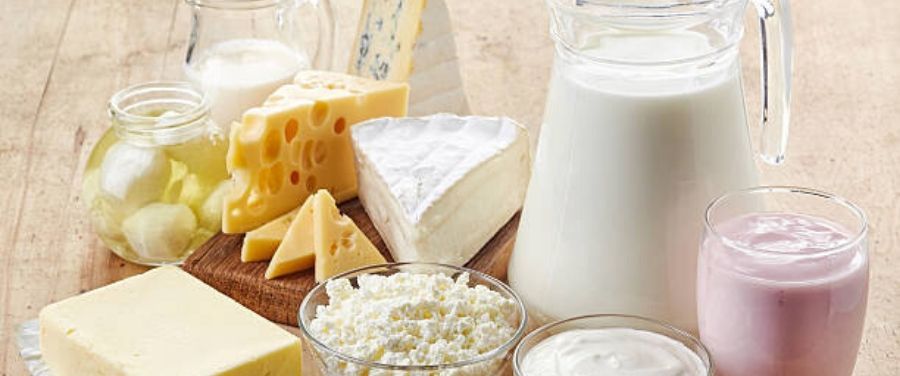OVERVIEW:
Healthy nutrition plays an important role in better health of every person. If there is a deficiency of any nutrient in the body, then you can face many health problems. Calcium is also an essential nutrient and lack of calcium in the body causes many health problems. Calcium deficiency makes your teeth and bones weak. In such a situation, it’s important to include calcium rich food into your diet.
It’s a well known fact that calcium is vital for solid bones and teeth, but it goes beyond that fact. Calcium also helps to maintain healthy blood vessels, regulate blood pressure and even prevent insulin resistance, which could lead to type-2 diabetes. Calcium is the most plenteous mineral in the human body, and nearly 99% of your body’s calcium is stored in the structure of teeth and bones. Adults should consume about 1,000 mg of calcium daily. But the fact is that huge numbers of us aren’t consuming enough nourishment rich in calcium.
As you get older, or if you are pregnant/nursing or managing a condition that drains calcium, then you should include additional amount of calcium in your diet routine. To absorb and use calcium properly, you also require other essential nutrients like vitamin D, vitamin K and magnesium.
HOW MUCH CALCIUM DO YOU NEED A DAY?
Now the question is — how much calcium do you need per day to meet your calcium requirements? Here are the recommended dietary intake for calcium, according to the National Institutes of Health —
- Birth to 6 months, 200 mg
- Infants 7–12 months, 260 mg
- Children 1–3 years, 700 mg
- Children 4–8 years, 1,000 mg
- Children 9–13 years, 1,300 mg
- Teens 14–18 years, 1,300 mg
- Adults 19–50 years, 1,000 mg
- Adult men 51–70 years, 1,000 mg
- Adult women 51–70 years, 1,200 mg
- Adults 71 years and older, 1,200 mg
- Pregnant and breastfeeding teens, 1,300 mg
- Pregnant and breastfeeding adults, 1,000 mg
WHAT IS THE IMPORTANCE OF CALCIUM IN THE HUMAN BODY?
Calcium plays an important role in keeping your body fit and healthy, because —
- Calcium keeps your teeth and bones strong. Sometimes pain in the knees and joints can be a symptom of calcium deficiency
- Helps in smooth functioning of blood throughout your body
- Helps to maintain muscles
- Helps the endocrine system to function properly
- Reduces many types of risk of pregnancy
- Helps in keeping hormones and enzymes active
- Helps in keeping your weight balanced
WHAT FRUITS AND VEGETABLES ARE HIGH IN CALCIUM?
Here’re 10 best foods that are very high in calcium —
1. Milk:
For those who are deficient in calcium, milk is a good option for calcium supply. Weakness, loss of teeth, pain in hands and feet are due to calcium deficiency at an early age. But, milk reduces calcium deficiency in your body and prevents the risk of osteoporosis.
On average, one cup (approx 244g) of whole milk contains 276 mg of calcium, which is about 28% of your daily requirement. [Trusted Source 1]
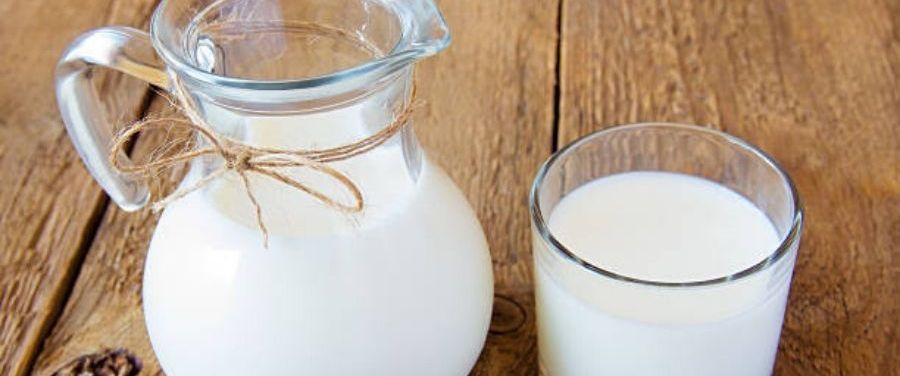
In addition, same serving size provides 8 gram protein, 24.4 mg magnesium, 222 mg phosphorous, 349 mg potassium, 97.6 mg sodium and 1 mg of zinc. [Trusted Source 1]
Milk is also a good source of vitamin A, vitamin D and vitamin K. Soy milk may also be a good choice for individuals who are lactose intolerant. It contains 22.5 mg of calcium in per 100 gram serving. If you are vegetarian, then milk can be a good option. You can also add skimmed milk into your routine diet. [Trusted Source]
2. Spinach:
You will get plenty of calcium in spinach. One cup (approx 30g) serving of raw spinach provides about 30 mg calcium, 24 mg magnesium, 14.7 mg phosphorous, 167 mg potassium and 24 mg of sodium. [Trusted Source 2]
It is also rich in vitamins A, C and K.

Other health benefits of consuming spinach may include improving blood glucose control in people with diabetes, improving bone health and lowering the risk of cancer. Other green vegetables like peppermint, kale and broccoli are also rich in calcium along with iron and vitamins, which can prove to be beneficial for your health. These vegetables are easily available in the market.
3. Black-Eyed Peas (Cowpeas):
One cup (approx 172g) of cooked or boiled cowpeas or black-eyed peas contains 200 calories, 41.3 mg calcium and negligible fat.
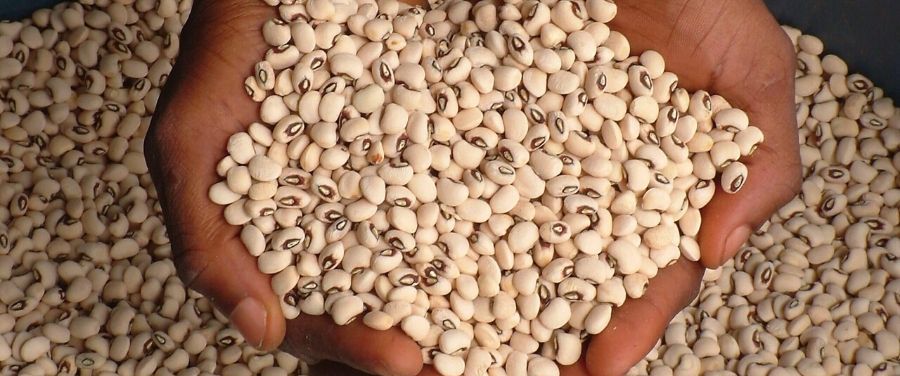
Same serving size provides about 13 gram proteins, 36 gram carbohydrates, 4.3 mg iron, 91.1 mg magnesium, 268 mg phosphorous, 478 mg potassium, 7 mg sodium and 2 mg of zinc. [Trusted Source 3]
It is also rich in vitamins A, E and K. [Trusted Source 3]
4. Almonds:
Almonds contain high levels of vitamin E and other antioxidants. One ounce (approx 28g) of almonds contain 73.9 mg of calcium, which is 7% of daily value. [Trusted Source 4]
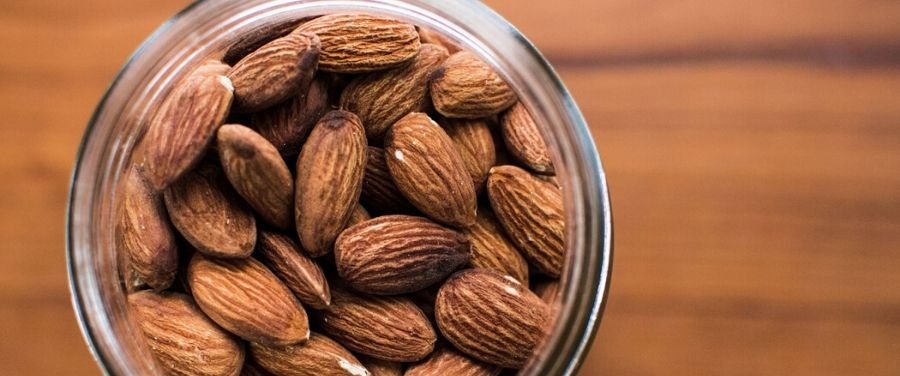
It also provides 160 calories, 6 gram carbohydrates, 6 gram proteins, 1 mg iron, 75 mg magnesium, 136 mg phosphorous, 197 mg potassium and 7.3 mg of vitamin-E per ounce serving. [Trusted Source 4]
They can also help you to manage weight. Almonds are high in proteins and fiber and lower in carbs, they can enable individuals to feel full for a long time.
5. Broccoli:
When it comes to great taste and nutrition, broccoli is an all-star vegetable with many health benefits. It is a great source of calcium. One cup (approx 91g) of chopped raw broccoli gives you about 42.8 mg (4% DV) of calcium. [Trusted Source 5]

Same serving contains about 31 calories, 6 grams carbs, 2.6 gram proteins, 19 mg magnesium, 60 mg phosphorous, 288 mg potassium and 30 mg sodium. [Trusted Source 5]
In addition, broccoli is a good source of vitamins A, B6, C, E and folate.
6. Cheese:
Along with protein and vitamins, calcium is also found in plenty in cheese. [Trusted Source 6] [Trusted Source 7]
You will be surprised to know that more than 100 varieties of cheese are available in the market. Our bodies absorbs calcium in dairy items more easily than that from plant-based sources.

One ounce (approx 28g) of cheese contains 202 mg of calcium, which is about 20% of your daily calcium needs. [Trusted Source 7]
It provides 113 calories, 9 gram fat, 7 gram proteins, 7.8 mg magnesium, 143 mg phosphorous, 27.4 mg potassium, 174 mg sodium, 29.4 mg cholesterol. [Trusted Source 7]
It is also rich in vitamins A, D, K and vitamin B12. [Trusted Source 7]
7. Oranges:
Oranges are full of calcium and vitamins. You can include them as a mid-morning snack. You can also consume it as orange juice. One large fruit (about 184 grams) contains 86.5 calories, 1.7 gm proteins, 21.6 gm total carbohydrate, 73.6 mg calcium, 18.4 mg magnesium, 25.8 mg phosphorus and 333 mg of potassium. [Trusted Source 8]

It also contains vitamins A, C, E and vitamin B6. [Trusted Source 8]
8. Sesame Seeds:
Sesame seeds can help to decrease blood pressure, reduce inflammation and may even fight against cancer. One ounce (approx 28 g) of roasted seasame seeds contains 277 mg of calcium, which is about 28% of your daily need. [Trusted Source 9]
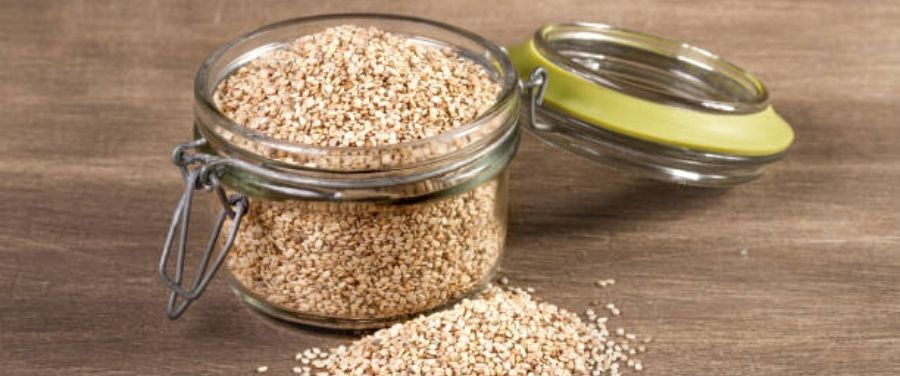
Same serving size provides 158 calories, 7.2 gram carbs, 13.4 gram fat, 4.7 gram proteins, 4 mg iron, 100 mg magnesium, 179 mg phosphorous, 133 mg potassium, 2 mg zinc and 0.7 mg manganese. [Trusted Source 9]
Sesame seeds are also a good source of vitamin A, vitamin B6 and folate.
9. Yogurt:
Yogurt is an excellent source of calcium. One cup (approx 245 grams) of plain yogurt contains 488 mg of calcium, which is about 49% of your daily requirement. [Trusted Source 10]

It provides 137 calories, 19 gram carbs, 46.5 mg magnesium, 385 mg phosphorous, 625 mg potassium, 189 mg sodium and 2.4 mg of zinc per cup serving. [Trusted Source 10]
It also contains vitamins A, C, K, B6 and B12.
10. Berries:
Who doesn’t like the taste of berries? They are great in taste, as well as, very nutritious. While talking about calcium, it is also found in plenty in berries.

SIDE EFFECTS OF CALCIUM:
Although, calcium is very important for your body, but its over consumption or excessive quantity may have following side-effects:
- Constipation
- Risk of kidney stones
- May reduce the effect of thyroid medication and certain antibiotics
- Some research has also revealed that excess calcium can increase the risk of prostate cancer and heart diseases
FINAL WORDS
Like iron and vitamin D, calcium is also an essential mineral found in our bodies. It is necessary for your bones and muscles. At the same time, it also helps your nervous system to function properly. Some of the best calcium rich food may include spinach, milk, cheese, yogurt, sesame seeds and broccoli. But consume this mineral in adequate quantity because its over-consumption may have many health side-effects. We hope that in this article you have come to know about amazing health benefits of calcium. If you want to avoid calcium deficiency diseases, then include calcium rich food in your diet.
RELATED ARTICLES:
